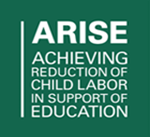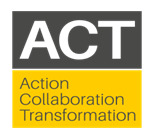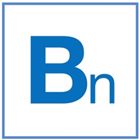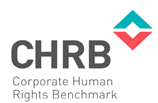PRIVATE SECTOR | ||
|---|---|---|
Name of Resource | Achieving Reduction of Child Labor in Support of Education (ARISE) |
Type | Platform for co-operation |
Country / jurisdiction | Global |
Organization | International Labour Organization, Japan Tobacco International, Winrock International |
Initiative launch date | 2011 |
Description | Achieving Reduction of Child Labor in Support of Education (ARISE) is a programme to help prevent and eliminate child labour in tobacco-growing communities where Japan Tobacco International does business. The partnership began in 2011, with much of that year devoted to building the partner relationships and developing the programme framework. The on-the-ground efforts began in Malawi and Brazil in early 2012 and in late 2012, in Zambia. |
Availability |
Name of Resource | ACT - Action, Collaboration, Transformation |
Type | Platform for co-operation, Monitoring and enforcement mechanism |
Country / jurisdiction | Global |
Organization | ACT |
Date of initial launch | 2017 |
Description | ACT (Action, Collaboration, Transformation) is an agreement between global brands and retailers and trade unions to transform the garment and textile industry and achieve living wages for workers through industry-wide collective bargaining linked to purchasing practices. ACT is a global commitment on living wages in the sector that provides a framework through which all relevant actors, including brands and retailers, trade unions, manufacturers, and governments, can exercise their responsibility and role in achieving living wages. ACT members have agreed the following the principles: a joint approach is needed where all participants in global supply chains assume their respective responsibilities in achieving freedom of association, collective bargaining and living wages; agreement on a living wage should be reached through collective bargaining between employers and workers and their representatives, at national industry levels; workers must be free and able to exercise their right to organize and bargain collectively in accordance with International Labour Organization Conventions. |
Availability | ENG: https://actonlivingwages.com/wp-content/uploads/2019/05/ACT_COMMS_Factsheet_05-2019-WEB-1.pdf |
Name of Resource | BlueView - Supply Chain Transparency to Protect People and Places |
Type | Platform for co-operation, Knowledge/information hub |
Country / jurisdiction | Global |
Organization | Bluenumber |
Initiative launch date | 1 November 2017 |
Description | Bluenumbers were introduced at the UN in 2015 as a tool to track and measure the Sustainable Development Goals (SDGs) from a beneficiary-centric perspective. Bluenumbers can identify, enable and empower individuals, such as small farmers or conscious consumers. We help businesses trace their supply chains, verify and analyse their data, and generate evidence to support their sustainability claims. BlueView is a public good using anonymized Bluenumbers to show the location of people relative to global risks and impacts such as fires and burning, deforestation and other hazards. These data sets of people and organizations at locations enable instant understanding of who is impacting, or being impacted, in climate zones or human development. Companies and governments work with Bluenumber to reach farmers and workers in complex and dynamic supply chains. Bluenumbers are currently focused on smallholder palm oil farmers in Malaysia and garment factory workers in Bangladesh. To avoid data slavery, farmers and workers own their own data. Companies share non-competitive data from private Bluenumber supply chain maps, which provide full traceability to the last farmer or worker. The companies visualize who produces their products, and gains valuable insight and analysis to report on livelihoods, education, health and other indicators for human rights and development. |
Availability |
Name of Resource | Business Actions Against Forced Labour |
Type | Corporate Policy, Guidance on policy / legislation implementation |
Country / jurisdiction | Global |
Organization | The Consumer Goods Forum |
Date of publishing | 2017 |
Description | The publication, Business Actions Against Forced Labour, is a practical demonstration of the collaborative spirit between businesses, government, civil society and workers’ organizations, showcasing concrete actions that are being taken to address and prevent forced labour in global supply chains. These actions include corporate efforts to implement Consumer Goods Forum’s Priority Industry Principles, a set of principles that, when applied on a global scale, can help address the conditions that contribute to forced labour: every worker should have freedom of movement, no worker should pay for a job and nor worker should be indebted or coerced to work. |
Availability |
Name of Resource | Construction and the Modern Slavery Act. Tackling Exploitation in the United Kingdom |
Type | Report/analysis |
Country / jurisdiction | United Kingdom |
Organization | The Chartered Institute of Building |
Date of publishing | May 2018 |
Description | This report examines the United Kingdom’s construction industry’s response to the Modern Slavery Act and the systemic problems that effects the rights of domestic and foreign workers in the sector. |
Availability | ENG: http://www.ciob.org/campaigns/tackling-modern-slavery-construction |
Name of Resource | Corporate Human Rights Benchmark. Pilot Methodology 2016 |
Type | Score / Measurement / Metric |
Country / jurisdiction | Global |
Organization | Corporate Human Rights Benchmark |
Date of publishing | March 2016 |
Description | The benchmark was developed to provide a comparative year-on-year snapshot of the human rights performance of the largest 500 companies of the world, looking at the policies, processes and practices they have in place to systematize their human rights approach and how they respond in case of finding labour exploitation and other human rights abuses in their supply chain. |
Availability | ENG: https://business-humanrights.org/sites/default/files/CHRB_report_06_singles.pdf |
Name of Resource | Daimler AG - Human Rights Respect System |
Type | Corporate Policy |
Country / jurisdiction | Global |
Organization | Daimler |
Date of publishing | May 2018 |
Description | This corporate policy sets to ensure that Daimler’s products contain only raw materials that have been mined and produced without human rights violations. Due to the complexity of the supply chains and the multitude of raw materials in their products, a risk-based and strategic approach is required. The Human Rights Respect System aims to recognize and avoid risks and possible negative effects of corporate action on upholding human rights at an early stage. The Human Rights Respect System will be used both in Daimler’s supply chain as well as in their majority held entities. The System draws on Daimler’s Compliance Management System, which consists of four steps: risk assessment, programme implementation, monitoring and reporting. |
Availability | ENG: https://www.daimler.com/sustainability/responsible-conduct/human-rights/ |






